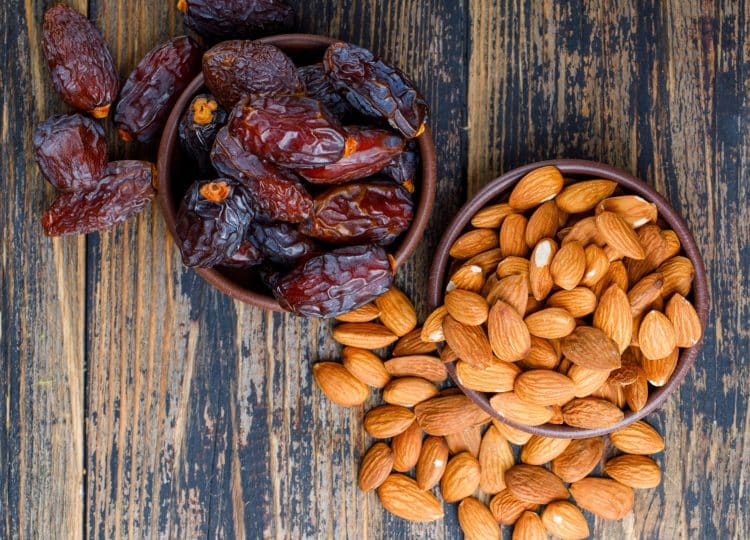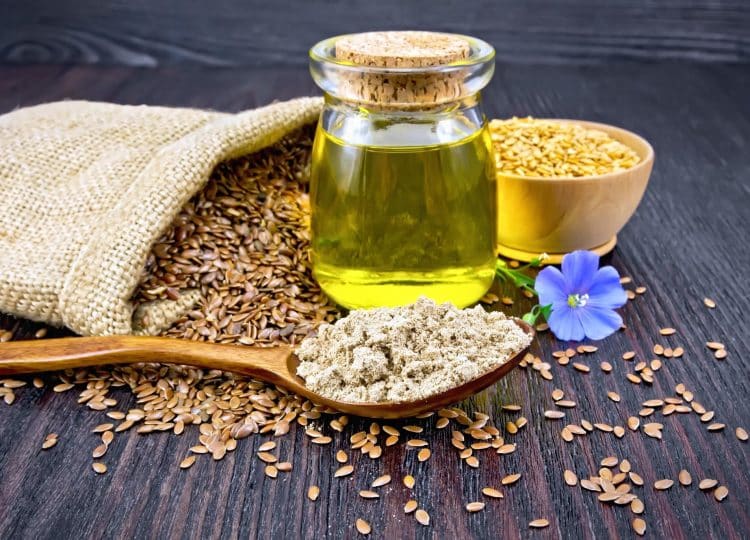Fitness experts love to argue. They’ll go toe-to-toe over almost any training or nutrition point of view. Typical workout arguments include:
- Freeweights vs. machine
- Calisthenics vs. freeweights
- HIIT vs. LISS cardio
- Static vs. dynamic stretching
- High volume vs. low volume workouts
- Fasted vs. non-fasted cardio
- Full-body vs. split routines
- Pull-ups vs. chin-ups
- Squats vs. lunges…
Another hugely divisive subject is when’s the best time to work out. Some believe that mid-afternoon or evening workouts are best, while others say the early morning is the ideal training time.
As with all these arguments, the answer is actually the option that works best for you. That should always be your guiding principle, regardless of what some self-proclaimed internet fitness expert wants to tell you.
Ultimately, you should try a few different approaches to determine which one provides you with the most bang for your buck. Regarding training time, it’s usually what fits best with your work schedule and home life.
This article focuses on early morning training and, particularly, what you should eat to fuel your workouts.
Early Morning Workouts – Pros and Cons

While not everyone is a “morning person,” the early morning is a great time to work out. Hitting the gym shortly after waking offers several valuable advantages and benefits, including:
- Gyms are usually quieter and less crowded, so you can complete your workout with fewer interruptions and less wasted time.
- You are well rested after a night’s sleep.
- By prioritizing your workout, other daily commitments are less likely to interfere with your gym time.
- With less traffic on the roads, driving to the gym is usually easier and quicker.
- Early morning workouts can be energizing.
- There are more opportunities for post-exercise meals. In fact, EVERYTHING you eat after an early morning workout becomes a post-exercise meal!
- The rest of your day feels easier by comparison.
- If you miss your morning workout, you can always catch it up later in the day. This is not always possible if you always leave your workout to later.
Of course, there are downsides to early morning workouts.
For starters, some people wake up more slowly than others and may not feel like exercising shortly after rising. Also, after a night of not moving much, it may take you longer to warm up and get your body moving. Some people also feel stronger later in the day than in the morning.
You may also need to go to bed earlier so you can get enough sleep. Doing sleep-deprived workouts will probably make your training less productive. To make early morning training work, you need to be disciplined enough to get to bed 8-9 hours before you plan on hitting the gym.
Another drawback to early morning training is how to fit in your pre-workout meal. Yes, you can just chug down a shot of pre-workout powder or a cup of coffee and get to work, but that may not be the best way to prime your muscles and raise your energy levels.
So, in this article, we discuss what to eat before an early morning workout.
Why You May Need to Eat Before Working Out

Before we get into the whole topic of what to eat before an early morning workout, it’s essential to understand that you CAN exercise without eating first. That’s because your body already contains an abundance of energy.
Firstly, you’ve got your body fat stores. Even the leanest person has many pounds of body fat, and each one contains about 3,500 calories of energy. To put that in perspective, most people burn roughly 600 calories per hour during an intense workout, so you aren’t going to run out of energy anytime soon.
Fat is your primary source of energy for low-intensity workouts like LISS cardio. In fact, doing cardio without eating, i.e., fasted cardio, may increase fat oxidation and lead to faster fat loss (1).
However, while fat is the fuel of low-intensity workouts, your body uses mostly glycogen during high-intensity training, i.e., HIIT and strength training.
Glycogen is glucose bound to water. It’s stored in your liver and muscles. If your glycogen levels are low, you won’t have the energy you need to train as hard or as long as you might otherwise want (2). As such, doing strength training without eating first may compromise your workout.
Glycogen and blood glucose levels tend to fall during the night while you are sleeping. So, on waking, your fuel levels may be slightly lower than optimal. As such, it can be beneficial to eat shortly before training to ensure your glycogen levels are topped up.
[sc name=”style-blue-box” ]
So, if you are doing early morning cardio, especially for fat loss, you should be able to work out without eating before your workout. In fact, not eating may even help you burn more fat.
But, if you are planning on lifting heavy weights or doing some other kind of high-performance workout, such as HIIT, a pre-workout meal could mean your energy levels are higher, so you can work out harder or longer.
[/sc]
What to Eat Before Early Morning Workout – Guidelines
We’ll give you a few ideas for what to eat before an early morning workout in the following section. But for now, let’s focus on the guidelines that determine what makes a good pre-early morning workout snack.
Make sure what you eat the night before is also a pre-workout meal
Even a great pre-early morning workout meal won’t make up for not eating correctly the night before. Make sure that you treat your final meal of the day as a pre-training meal, too. It should be high in carbs, contain plenty of protein, and leave your muscles fueled and satiated.
However, because it’s got all night to digest, this meal can also contain fiber and fat.
Eating a nutritionally complete meal a couple of hours before going to bed will help fuel muscle recovery and growth and ensure you wake up with good levels of muscle glycogen. Your early morning pre-workout snack should just top up your already high levels of glycogen and glucose.
Timing
Ideally, you should consume your pre-early morning training meal 30-60 minutes before you start training. This will give the food long enough to start digesting. Save time by planning and preparing your pre-workout meal the night before so you can eat it soon after rising.
It’s worth noting that liquids digest more quickly than solids, so if you plan to train shortly after getting up, it may be better to drink rather than eat your pre-workout meal.
Carbohydrates

When you eat carbohydrates, they are broken down into glucose. Your body uses glucose as an immediate source of energy, and any surplus is converted to and then stored as glycogen.
As it’s glucose and glycogen you need to power you through your workout, carbohydrates should be the cornerstone of your pre-early morning workout meal.
Because there probably won’t be much more than an hour or so between getting up and starting your workout, you need carbs that are fast-acting and easy to digest. This means you should choose foods that rank moderate to high on the glycemic index chart (3).
The glycemic index chart ranks carbs from 1-100, with 100 being the fastest acting. Moderate to high glycemic carbs are digested easily and raise your blood glucose quickly.
Examples of moderate to high GI foods include:
- Dates
- Breakfast cereal
- White bread
- Ripe bananas
- White rice
- White pasta
Most people should consume around 50-100 grams of carbs before their workout (4). This equates to between 200-400 calories which is enough to top up your glucose levels but should still be easy to digest before you begin your training.
Adjust your carb intake (and, therefore, the size of your meal) according to the duration and intensity of the workout you are about to do. For example, if you are training chest, back, or legs, it’s appropriate to consume a large pre-workout meal. But, a smaller meal would be more suitable for a less demanding workout like calves and core.
Protein

While you can just eat carbs before training, some research suggests that combining carbs with protein will have an even better effect (4). Consuming carbs with protein provide energy and also helps prevent muscle breakdown.
You don’t need a lot of protein to enjoy this benefit – 20-30 grams should suffice. Consuming more may result in delayed carb oxidation and lower levels of readily available energy.
Fat

Fat is the most significant gastric inhibitor. That means it keeps food in your stomach for longer and delays digestion. As such, your pre-early morning workout meal should be very low in fat. Do NOT even add healthy fats to your pre-workout meal, so no olive oil, flaxseed oil, or coconut oil. Also, avoid natural sources of fats, such as nuts and whole eggs.
[sc name=”style-blue-box2″ ]
The only exception to this rule is when you are on a very low-carb ketogenic diet when consuming sources of medium-chain triglycerides (MCTs – a special kind of fat) will help raise ketone levels and give you more energy for training. However, this does NOT apply to a standard moderate or high-carb diet.
[/sc]
Fiber
Fiber is part of most carbohydrate foods. It’s the indigestible part of plants. However, while fiber is very good for you, like fat, it’s also a major gastric inhibitor and best avoided in pre-early morning workout meals.
Instead, look for more refined and naturally low-fiber foods, such as white bread instead of whole grain bread.
[sc name=”style-blue-box2″ ]
To summarize, your pre-early morning workout meal should be predominately moderate to high GI carb-based, can also contain some protein, but needs to be low in fat and fiber. Liquids are digested faster than solids, so they may be the best choice if you plan on training shortly after getting up.
[/sc]
Suggested Meals and Snacks
Armed with the information above, you should have no problem selecting your own pre-early morning workout meals and snacks. That said, here are a few ideas to get you started:
- Toast and fruit preserve, plus a cup of low-fat natural yogurt
- Ripe banana mashed onto toast with a little honey
- Cereal and low-fat milk
- Turkey and crackers
- Fruit smoothie made with soft fruit, low-fat yogurt, and protein powder
- A carb/protein energy bar
- Scrambled egg whites and rice crackers
- Instant oatmeal and berries
- Bagel and turkey slices
- 1 cup of orange juice and a few slices of beef jerky
- 1 cup applesauce and 1-2 hardboiled eggs
- Granola bar
- Toasted English muffin with low-fat cream cheese
Ultimately, so long as your meal contains moderate to high GI carbs and a source of protein, it will provide your body with what it needs to power through your workout, even if those foods are not traditional breakfast fayre.
Wrapping Up
Early morning training can be very rewarding, but it can also be quite challenging, especially when it comes to finding time for your pre-workout meal. The good news is that providing you choose the right foods, you can maximize your energy by eating a snack or small meal 30-60 minutes before you hit the gym.
Of course, you can do fasted workouts, but you may find that you cannot train as long or as hard if you don’t eat before training. Try fasted workouts and see how they affect your performance.
However, for most people, a small serving of fast-acting carbs and protein will provide the fuel for a great early-morning workout.
References:
1. PubMed: Exercise Training and Fasting: Current Insights https://www.ncbi.nlm.nih.gov/pmc/articles/PMC6983467/
2. PubMed: Pre-Exercise Nutrition: The Role of Macronutrients, Modified Starches and Supplements on Metabolism and Endurance Performance https://www.ncbi.nlm.nih.gov/pmc/articles/PMC4042570/
3. Glycemic Index.org: Glycemic Index Chart
4. PubMed: Pre-Exercise Nutrition: The Role of Macronutrients, Modified Starches and Supplements on Metabolism and Endurance Performance https://www.ncbi.nlm.nih.gov/pmc/articles/PMC4042570/


